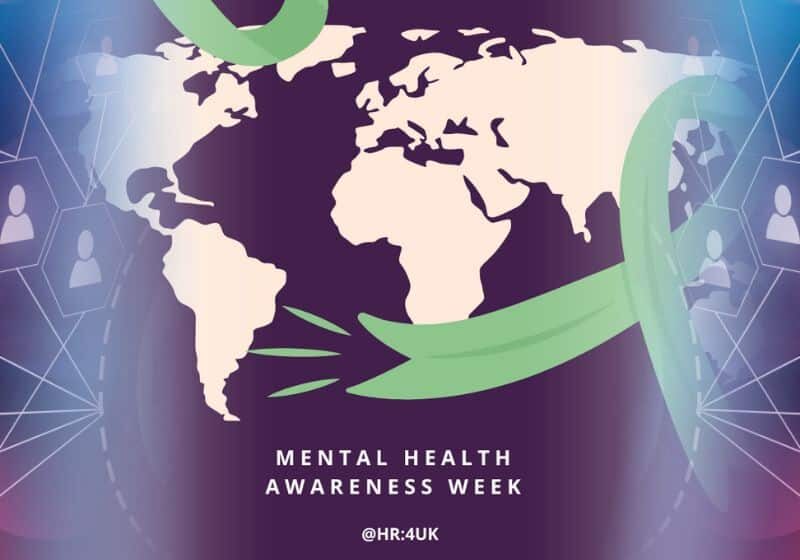Mental Health Awareness Week: Movement and Returning to Work

This year’s Mental Health Awareness Week, the 23rd of its kind, kicks off today May 13th. It serves as a touch point on the Mental Health Foundation’s yearly calendar.
Recently the week’s focus has shifted from awareness to prevention.
As mental health issues continue to be de-stigmatised, more and more people are realising the effect that mental health issues can have on their lives, and there is now much more interest in what can be done to prevent them occurring.
2024’s theme is “movement.”
The benefits of physical activity to mental health are no secret. The NHS lists it as one of the best things you can do for your mental health. However, movement is often misidentified as long and arduous exercise sessions. According to the Mental Health Foundation, this simply isn’t the case. This idea tends to keep people from getting active, but it shouldn’t. For example, something as simple as walking or even dancing to music can be classed as physical activity
So, what does Mental Health Awareness Week have to do with HR?
At HR:4UK, we don’t think awareness weeks are just for the week. They represent a foundation for a proactive, year-round approach to key issues, which is especially important for employee well-being.
Part of this focus should be on what employers can do to help their employees improve their mental health.
Looking after your employees is crucial in creating a productive and happy work environment. However don’t just take our word for it, according to the Health and Safety Executive, an estimated 17 million work days are lost each year due to mental health issues costing the economy £117.9 billion.
Could getting into the office be the missing link to building an active lifestyle?
Mental Health and Work
Recently the Minister of Work and Pensions, Mel Stride told the Telegraph, “We as a culture seem to have forgotten that work can be good for mental health.”
This can seem harsh. If you are dealing with mental health issues, the last thing you may want to think about is going to the office and dealing with a high-pressure meeting, especially if an employee has a physical disability.
However, according to the NHS, returning to work can have significant benefits.
Including:
- Sense of identity and purpose
- A chance to build friendships
- Less financial stress
- A feeling of being important to society.
More significantly, it can get employees moving. It may seem subtle, but walking into the office in the morning or taking a quick trip to the cafe for lunch is part of an active lifestyle.
But it’s not as simple as forcing employees back into the office, there are some key steps that employers can take to help those struggling with mental health issues come back to work without any issues.
Helping an Employee Return to the Office
An employer should provide the framework to help employees struggling with mental health issues get back into the routine of going to work.
An Employee Assistance Program (EAP) helps significantly. In fact, for every £1 invested in an EAP, employers can expect to receive a 10x return. What you include in an EAP is your choice.
However, make sure to have:
- A confidential counselling service external to the company. Often, employees may find it difficult to speak about their issues to a colleague, so a confidential service can help talk through their problem.
- Manager training training senior employees to recognise signs that an employee may be struggling and offer some assistance.
- 24/7 accessibility. Mental health symptoms can be at their worst outside of work. An EAP must be accessible 24 hours a day to deal with moments of crisis.
Other than an EAP, implementing regular informal 1-2-1 discussions also helps employees struggling with their mental health. By framing the discussions as a simple catch-up, employees will feel more at ease sharing their problems, allowing you to help them take proactive steps.
An additional management strategy is to offer flexible working arrangements. According to an anonymous People Management survey, 39% of workers who were given a flexible arrangement found it beneficial for their mental health.
Flexible working can be anything from a fully hybrid set-up to allowing an employee to come in later in the day or to work reduced hours.
It’s all about providing the framework for employees to create a work routine that suits them. This could be anything from having the morning to themselves to a full counselling session. The bottom line is that if employee is able to return to the office, this is likely to benefit both the employee and the employer.
HR:4UK’s Team
At HR:4UK, we prioritise the mental well-being of all our employees. As some of you may know, we have a small team, so a collaborative approach is key to our culture.
As part of this, we believe in being honest and open about everything and try our best to help our employees find a routine that works for them.
One of our fundamental values is “speaking up, sharing ideas.” which allows each of us to be open and honest.
We recognise that it’s ok to have an “off day”, prioritise family, and concentrate on ourselves.
Even just an hour of quiet time in the morning can significantly help employees.
If you would like to have a chat on how you can build a culture which helps employees who are struggling with their mental health, then please reach out to an advisor 01455 444222 or email us at [email protected]
Angela Clay
A qualified employment law solicitor and our managing director, Angela has unparalleled legal expertise and decades of experience and knowledge to draw from. She’s a passionate speaker and writer that loves to keep employers updated with upcoming changes to legislation, and is a regular guest speaker on BBC Leicester Radio.




